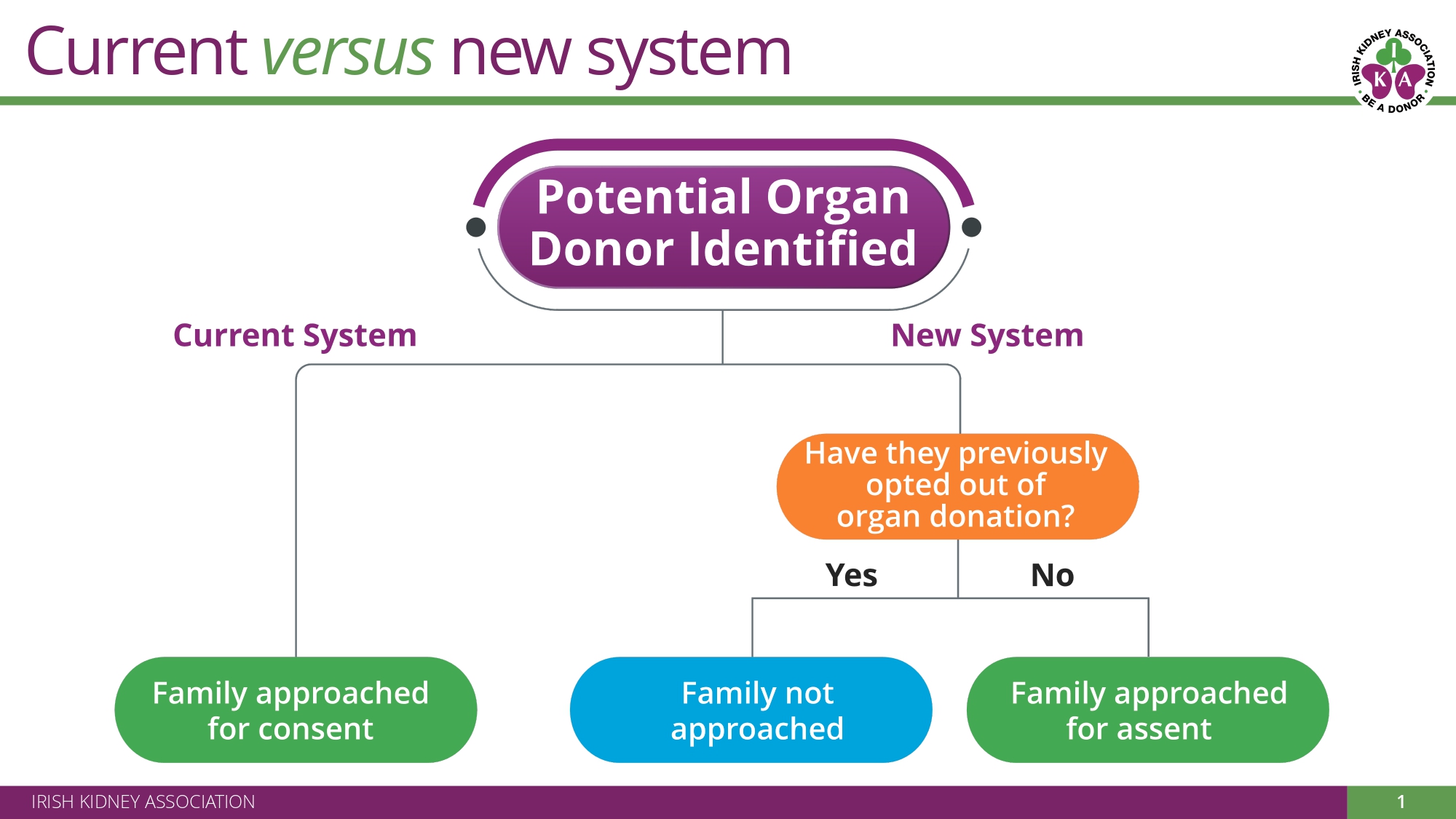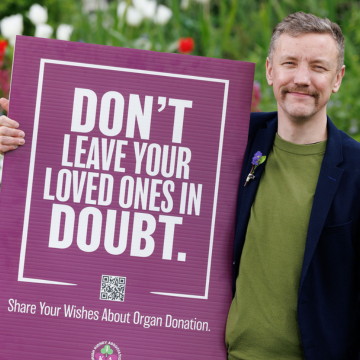Read this article from our Support Magazine that has tips to help you navigate
whether something is true, false, or somewhere in between.

Misleading messages are circulating about the new Human Tissue Act (transplantation) suggesting families need a court order if they do not wish to donate organs, and that the government now owns your organs. These messages are incorrect.
The graphic shown compares the existing approach to the new approach when the Act is actually commenced (starts being operated).
It can be seen from the graphic that families continue to have the final say in whether their loved’s one organs are donated.
Key Things To Remember
How to spot misinformation online
Get An Organ Donor Card
Request a card and use it to tell your family your wishes.
Organ Donation - FAQs
View the most commonly asked questions about Organ Donation.
Organ Donation Transplant Ireland
ODTI are responsible for Organ Donation in Ireland.

Organ Donation: Don't let these myths confuse you
Around 600 people in Ireland are waiting for an organ transplant.
Sadly, some of these may never get the call saying that a donor organ has been found. Many may not get that second chance at life.
It can be hard to think about dying. It can be even harder to think about donating organs and tissue. But organ donors save lives.
Here are answers to some common organ donation myths and concerns - click the myth to read the facts.
Fact: When you go to the hospital for treatment, the health care team tries to save your life, not someone else's. You get the best care you can get.
Fact: This is a popular myth. But in reality, people don't start to wiggle their toes after a health care provider says they're dead. In fact, people who have agreed to organ donation are given more tests to make sure they're dead than are those who aren't donating organs.
Fact: Most major faiths accept organ donation. These include Catholicism, Islam, Buddhism, most branches of Judaism and most Protestant faiths. Some religions believe organ donation to be an act of charity. If you don't know where your faith stands on organ donation, ask a member of your clergy.
Fact: If you die before your 18th birthday, your parents or legal guardian will make the decision. If you want to be an organ donor, make sure your family is OK with your wishes. Remember, children, too, need organ transplants. They often need organs smaller than adult size.
Fact: Donors' bodies are treated with care and respect. And they're dressed for burial. No one can see that they donated organs or tissues.
Fact: There's no standard cutoff age for donating organs. The decision to use your organs is based on the health of your organs, not age. Let the health care team decide at the time of your death whether your organs and tissues can be transplanted.
Fact: Very few medical conditions keep you from donating organs. Maybe you can't donate some organs, but other organs and tissues are fine. Again, let the health care team suggest at the time of your death whether your organs and tissues can be transplanted.
Fact: It is normal medical practise to vaccinate against infectious diseases prior to transplant surgery. For example, Hepatitis B & C are routinely vaccinated against prior to surgery. Post transplant, patients take medication in order to reduce the risk of organ infection. This leads to a compromised immune system which reduces the ability to recover from infections. There is overwhelming evidence that organ transplant recipients are extremely vulnerable to the COVID-19 virus – mortality rates of 20% have been recorded in many countries. All patients suitable for transplantation will remain on the transplant programme regardless of their vaccination status. If they are called for an organ transplant, an individual risk assessment will be carried out to make sure the benefits of surgery outweigh the risks of surgery.
